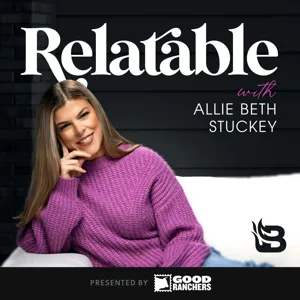Podcast Summary
Growing concerns over TikTok's data security risks: Despite its popularity, TikTok faces calls for a ban due to data security concerns and comparisons to an addictive substance. TikTok responds with initiatives like Project Texas to address these issues, but the debate continues over privacy, national security, and individual freedom.
Despite the widespread popularity of TikTok, with over 100 million users in the US alone, there are growing concerns from government officials at various levels about the app's potential data security risks, given that it is owned by a Chinese company. These concerns have led to calls for a ban on the app, with some comparing it to a highly addictive substance. However, TikTok is defending itself against these allegations with initiatives like Project Texas, aimed at addressing data security concerns. Ultimately, the debate highlights the ongoing tension between privacy, national security, and individual freedom in the digital age.
TikTok under Scrutiny for Potential Data Access by Chinese Government: Experts warn Chinese government could secretly obtain TikTok user data, raising concerns for national security and individual privacy.
TikTok is under intense scrutiny due to concerns over the Chinese government potentially accessing user data. While TikTok maintains they have never received a request for Americans' data, experts caution that the Chinese government could be secretly obtaining it. This issue is complicated by the lack of concrete evidence, leading to political grandstanding and debates in Washington. The potential consequences of such data access include disinformation campaigns, tracking federal employees, and blackmail. Despite TikTok's assurances, skepticism remains high, highlighting the challenges of balancing national security concerns with individual privacy and technological innovation.
Tour of TikTok's headquarters reveals details of Project Texas: TikTok addresses data security concerns by bringing US user data to the US through Project Texas, partnering with Oracle.
TikTok is addressing concerns over data security and privacy by bringing all American user data to the US. This initiative, named Project Texas, involves creating a separate entity called US Data Security and partnering with Oracle, based in Texas. The journalists were given a tour of TikTok's headquarters and were shown interactive presentations about the project. While the tour felt like a children's museum, the most informative part was the presentation about Project Texas, which aims to alleviate concerns about data security and potential spying by keeping American user data within the US.
TikTok's Data Transfer Project: Isolating American Users' Data from China: TikTok is creating a separate entity with a firewall to move over 100 million American users' data from China to Oracle, addressing national security concerns.
TikTok is implementing a major data transfer project, named Project Texas, to address national security concerns in the US. This involves creating a separate entity with a firewall to isolate American users' data from China, and Oracle will be in charge of handling this data. Although it may seem abstract, it's a massive undertaking to move data for over 100 million people, and it's a crucial step for TikTok to continue operating in the US. Most national security experts believe this is a legitimate solution, as there are checks and balances in place, including an independent board for monitoring and audits. While there might not be a direct precedent for this, it's unprecedented due to TikTok's size as a China-based social media app in the US.
TikTok's uncertain fate in the US: The national security panel is examining TikTok's assurances, which could lead to a ban, litigation, international tension, and disruption of operations.
The fate of TikTok in the US remains uncertain as the national security panel led by the treasury department is examining the app to determine if they will approve the company's assurances. If the panel denies approval, TikTok may be banned in the US, leading to potential litigation, international tension, and a complete disruption of the app's operations. The outcome of this situation could significantly impact TikTok and its users in the US. Bobby Allen, an NPR tech reporter, emphasized that this is uncharted territory, as there's no clear precedent for how such a situation would unfold. The potential consequences include TikTok severing all ties in the US, triggering a wave of litigation, and causing diplomatic tension between China and the US. The next crucial development to watch for is the panel's decision on whether to approve TikTok's assurances or not.





